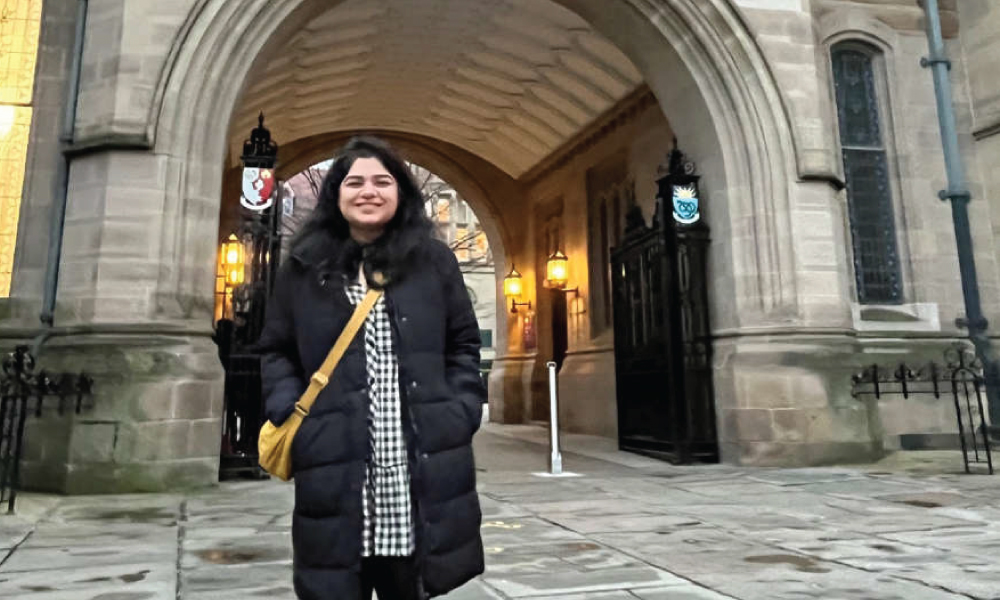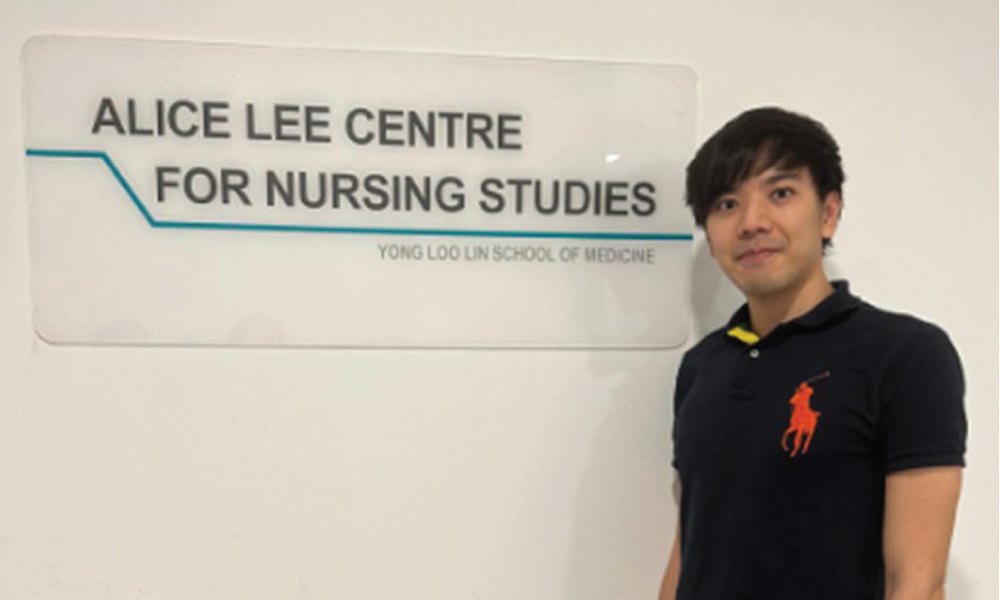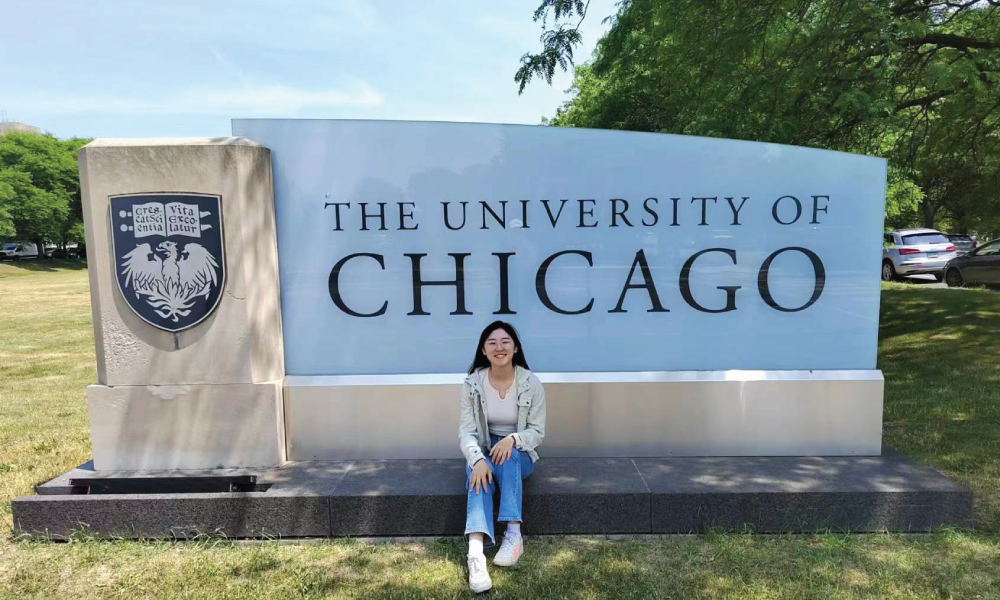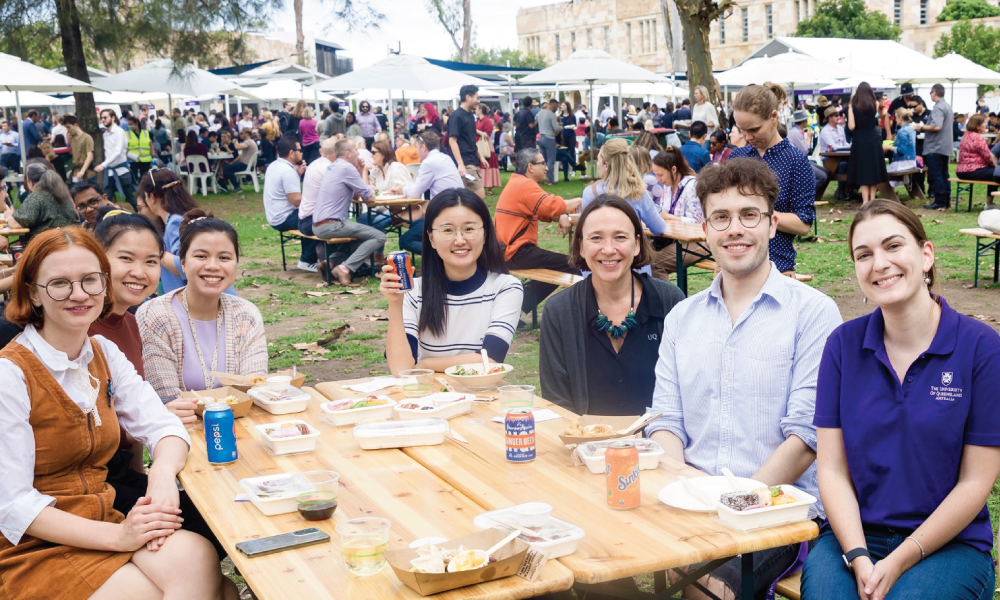Guidelines Leaflet
Online Application System
Forms and Notes for Successful Applicants
RSAP 2023/24 2nd Round
[applicable for attachment commencing on or before 30 April 2025]
Introduction
Research Student Attachment Programme - Outgoing (RSAP-Outgoing) provides PolyU PhD students with an opportunity to pursue attachment at international institutions to foster collaborative research, and enhance students’ international networking and global vision. Two rounds of applications are invited each year.
Applications must fulfil at least one of the following conditions:
- Attachment to a university outside their home country, and/or
- Attachment to a top research institute or lab outside Hong Kong.
Note: Applications from Chinese students for attachment to universities in Mainland China will generally not be supported unless the host unit is a national or international top lab in a specific field. However, an exception applies to applications from PolyU students from the Faculty of Business, the Faculty of Construction and Environment, and the School of Hotel and Tourism Management for attachment to Zhejiang University, which are funded by the Zhejiang University Special Funding Scheme (ZJUSFS) operated within RSAP.
Period of attachment
- The period of attachment is from a minimum of three months to a maximum of one year.
- This period of attachment will be counted within the normal study period of the student. The completion date of the attachment programme must not exceed the normal period of study.
- For the awardees of the Hong Kong PhD Fellowship Scheme, the minimum period of attachment can be 85 days instead of three months.
- Students should take visa processing time into consideration when proposing the commencement date of the attachment.
Eligibility
- PhD students with good academic standing are eligible for application.
- Applicants and host supervisors should have common research interests for supervision purposes.
- Students whose PhD registration is not confirmed may be given a conditional offer to undertake the attachment programme. If they cannot have their PhD registration confirmed before the latest commencement date of the attachment programme, the conditional offer will lapse.
- Awardees of the Hong Kong PhD Fellowship Scheme are reminded to note the residence requirement set out in the Terms and Conditions of the Scheme, which specifies “If an awardee stays outside Hong Kong for academic/research activity for an aggregate period exceeding 90 consecutive days, or an aggregate of 183 days, the stipend will be suspended immediately unless prior approval by the Research Grants Council (RGC) has been given upon provision of strong justification by the affiliated university.”, and obtain prior approval from the RGC where applicable.
- Applicants who have previously participated in an attachment programme can re-apply.
Financial support
- Successful applicants are entitled to a subsistence allowance of HK$7,500 per month (or a daily rate of HK$250 for a partial month). The maximum allowance is capped at HK$45,000 per trip, i.e., the amount for a maximum of six months.
- Notwithstanding the foregoing, PolyU students from the Faculty of Business, the Faculty of Construction and Environment, and the School of Hotel and Tourism Management who attach to Zhejiang University are entitled to a monthly allowance of RMB7,500 with a cap of RMB45,000 per trip under the Zhejiang University Special Funding Scheme (ZJUSFS).
- Successful applicants are entitled to a travel allowance capped at HK$10,000 on a reimbursement basis to cover actual travel expenses incurred. Travel expenses cover a round-trip economy class ticket and connecting transportation by the most direct route to/from the host institution and ticket-related taxes, fees and levies.
- The aggregate amounts for subsistence allowance and travel allowance per student throughout the period of study are capped at HK$45,000 and HK$10,000, respectively.
- Successful applicants will continue to receive stipends and pay tuition fees as required by PolyU, if applicable.
- Students are responsible for any tuition and other fees specified by the host university. Students are advised to consult the host supervisor prior to submitting their application.
- Successful applicants must commence their attachment programme within nine months of the date of the notice letter from the Graduate School (GS) unless special arrangements are announced. Failing that, the approved grant will be withdrawn.
- Students can concurrently apply for RSAP and the PolyU PhD Scholars International Collaborative Research Fellowship (ICRF) to maximise financial support for the visit.
Application procedures and timeline
- Applicants should seek the consent of the proposed host supervisor prior to application.
- Application can be made via the online submission system. Required submission documents include:
- An invitation letter from the host supervisor or host unit, specifying the attachment period;
- A copy of the academic transcript or assessment results downloaded from eStudent;
- A brief CV of the applicant with a list of representative publications; and
- A brief CV of the host supervisor with a list of representative publications.
- For attachment to research institute or lab, applicants should provide evidence, e.g., webpage link, to support that the host institution is top in the respective discipline.
- Timeline:
| Date | Event |
| 2 Apr 2024 | Call for application |
| 31 May 2024 | Application deadline |
| 7 Jun 2024 |
PolyU supervisor endorsement deadline |
| 14 Jun 2024 |
D/SRC application assessment deadline |
| 24 Jul 2024 | GS application selection |
| 31 Jul 2024 |
GS notification of results |
Enquiries
For enquiries, please contact the Graduate School by email at gs.attachment@polyu.edu.hk.
Student Sharing
With the supervision from Prof. David A. Weitz, I had the opportunity to learn and collaborate with the PhD students and research fellows in the Experimental Soft Condensed Matter Weitz Lab. The experience was fun and full of challenges.
Tianpeng Tu
Outgoing to Harvard University in the United States

During my four months at Manchester, I was able to interact with experts at aging-related research works and gained precious insights into the research culture in the UK. I established connections with colleagues at Manchester and beyond, which will be valuable for my future career.
Mohana Das
Outgoing to Manchester University in the United Kingdom

Because there is very limited Salutogenesis research within Asia districts, the RSAP provided me with a valuable opportunity to connect and collaborate with renowned and likeminded overseas scholars.
Terence Kenneth Lau
Outgoing to National University of Singapore in Singapore

Meeting people from various cultures expanded my horizon and deepened my understanding of global mental health problems and social problems.
Estelle Deng
Outgoing to The University of Chicago in the United States

The attachment programme not only deepened my knowledge and broadened my horizon, but also benefited my research studies by building connections and inspiring future research collaboration.
Darry Dai
Outgoing to the University of Queensland in Australia



